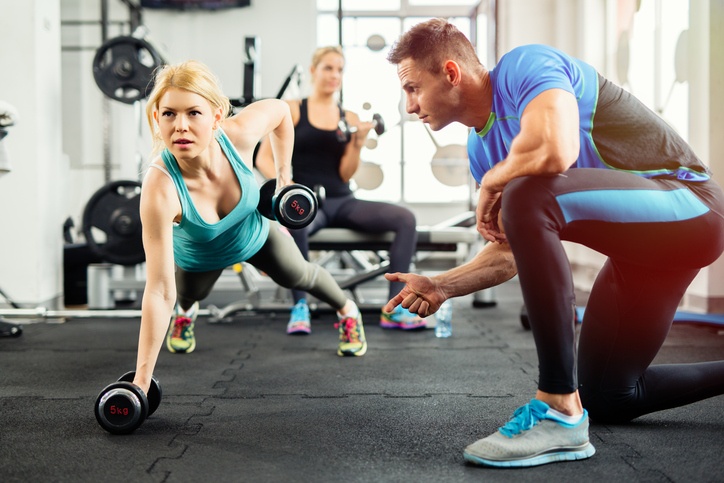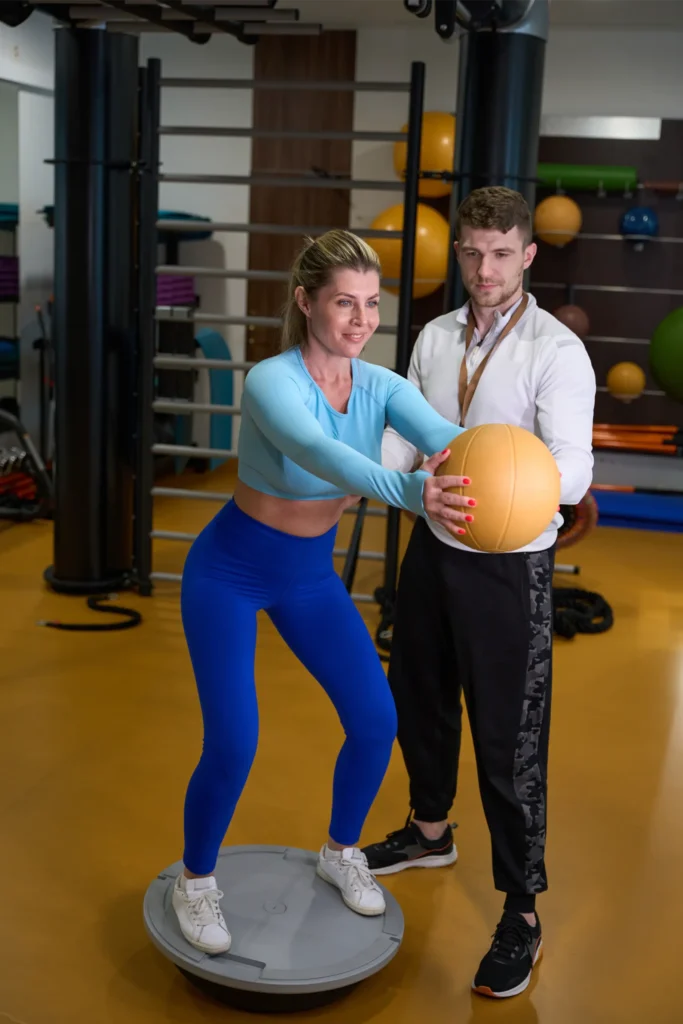Become a Group Sports Trainer: Inspire Client Fitness

Are you passionate about sports, fitness, and helping others achieve their goals in a dynamic, team-oriented environment? Becoming a group sports trainer can be a rewarding career path that allows you to combine your love for athletics with your desire to inspire and motivate others. As a group sports trainer, you’ll have the opportunity to lead engaging, challenging, and fun training sessions that foster a sense of camaraderie, teamwork, and personal growth among participants. In this article, we’ll explore the key steps to become a group sports trainer, the skills and qualifications needed to succeed in this role, and the benefits of pursuing a career in this exciting field.
What Does a Group Sports Trainer Do?
A group sports trainer is responsible for designing and leading training sessions that help teams and individuals improve their athletic performance, fitness, and overall well-being. This may include:
- Developing training programs that target specific skills, techniques, and fitness components relevant to the sport
- Demonstrating and teaching proper form, technique, and safety for various exercises and drills
- Providing motivation, feedback, and support to help participants push their limits and achieve their goals
- Fostering a positive, inclusive, and team-oriented environment that encourages collaboration and sportsmanship
- Monitoring progress, assessing performance, and adjusting training plans as needed to optimize results
- Educating participants on proper nutrition, hydration, and recovery strategies to support their training and overall health
Qualifications and Skills Needed to Become a Group Sports Trainer
To become a successful group sports trainer, you’ll need a combination of formal education, practical experience, and personal qualities. Here are some key qualifications and skills to focus on:
- Education: While specific requirements may vary, most group sports trainer positions require a relevant qualification, such as a Certificate III in Fitness (SIS30321) or Certificate IV in Fitness (SIS40221). These courses, offered by reputable institutions like the College of Health and Fitness (COHAF), provide a solid foundation in anatomy, physiology, exercise programming, and group instruction.
- Sport-Specific Knowledge: In addition to general fitness education, it’s essential to have a deep understanding of the specific sport or sports you’ll be training for. This may involve obtaining additional certifications, attending workshops or clinics, and staying up-to-date with the latest research and best practices in your chosen sport.
- Practical Experience: Hands-on experience is crucial for developing your skills as a group sports trainer. Look for opportunities to assist or shadow experienced trainers, volunteer with local sports teams or organizations, or complete internships to gain valuable practical experience.
- Leadership and Communication: As a group sports trainer, you’ll need strong leadership and communication skills to effectively guide, motivate, and inspire your participants. This includes being able to clearly explain exercises and drills, provide constructive feedback, and adapt your coaching style to meet the needs of different individuals and groups.
- Passion and Enthusiasm: Bringing energy, passion, and enthusiasm to your training sessions is essential for creating a positive, engaging, and motivating environment. Your love for the sport and commitment to helping others succeed should shine through in your work as a group sports trainer.

Steps to Become a Group Sports Trainer
If you’re ready to embark on a career as a group sports trainer, here are the key steps to follow:
- Obtain Relevant Education: Enroll in a recognized fitness qualification, such as the Certificate III in Fitness (SIS30321) or Certificate IV in Fitness (SIS40221) from COHAF. These courses will provide you with the foundational knowledge and skills needed to work as a fitness professional.
- Gain Sport-Specific Knowledge: Pursue additional education and certifications specific to the sport or sports you wish to train for. This may include attending workshops, clinics, or courses offered by sport-specific organizations or governing bodies.
- Acquire Practical Experience: Seek out opportunities to gain hands-on experience as a group sports trainer. This may include volunteering with local sports teams, assisting experienced trainers, or completing internships with sports organizations or fitness facilities.
- Develop Your Skills: Continuously work on developing your leadership, communication, and coaching skills through practice, self-reflection, and seeking feedback from mentors or experienced trainers.
- Build Your Network: Attend industry events, join professional organizations, and connect with other sports trainers and fitness professionals to expand your network and learn from others in the field.
- Stay Current: Keep up with the latest research, trends, and best practices in sports training and fitness by attending conferences, reading industry publications, and pursuing ongoing education and professional development opportunities.
Benefits of Becoming a Group Sports Trainer
Pursuing a career as a group sports trainer offers numerous benefits, both personally and professionally:
- Making a Difference: As a group sports trainer, you have the opportunity to positively impact the lives of others by helping them improve their fitness, skills, and overall well-being through sport and teamwork.
- Engaging and Dynamic Work: Leading group training sessions is an engaging, dynamic, and rewarding experience that allows you to share your passion for sports and fitness with others.
- Variety and Flexibility: Group sports training offers a variety of work settings, from schools and community centers to professional sports organizations, providing flexibility and diverse career opportunities.
- Continuous Learning and Growth: The field of sports training is constantly evolving, providing opportunities for ongoing learning, skill development, and professional growth.

Conclusion
Becoming a group sports trainer is an exciting and fulfilling career path for those passionate about sports, fitness, and helping others achieve their goals. By obtaining relevant education, such as the Certificate III in Fitness (SIS30321) or Certificate IV in Fitness (SIS40221) from COHAF, gaining practical experience, and continuously developing your skills and knowledge, you can build a successful career as a group sports trainer.
Remember, the journey to becoming an effective group sports trainer requires dedication, hard work, and a genuine commitment to the growth and success of your participants. By bringing your passion, expertise, and leadership to every training session, you can inspire and empower others to reach their full potential through the power of sport and teamwork.
Take the first step towards your career as a group sports trainer today by exploring the fitness qualifications offered by COHAF and start making a positive impact in the lives of others through the dynamic and rewarding world of sports training.
Become a group sports trainer at Cohaf …
If you’re contemplating a career as a personal trainer, then feel free to reach out to our team to discuss your options. The College of Health and Fitness has fitness courses that are suitable and we’re happy to discuss your options.
THE TOP TEN BENEFITS OF BECOMING A PERSONAL TRAINER:
- Helping others achieve their fitness goals
- Flexible work schedule
- Career growth opportunities
- Become your own boss
- Continuous learning and development
- Networking opportunities
- Active and healthy lifestyle
- Emotionally rewarding work
- Variety in the work environment
- Potential for specialisation
